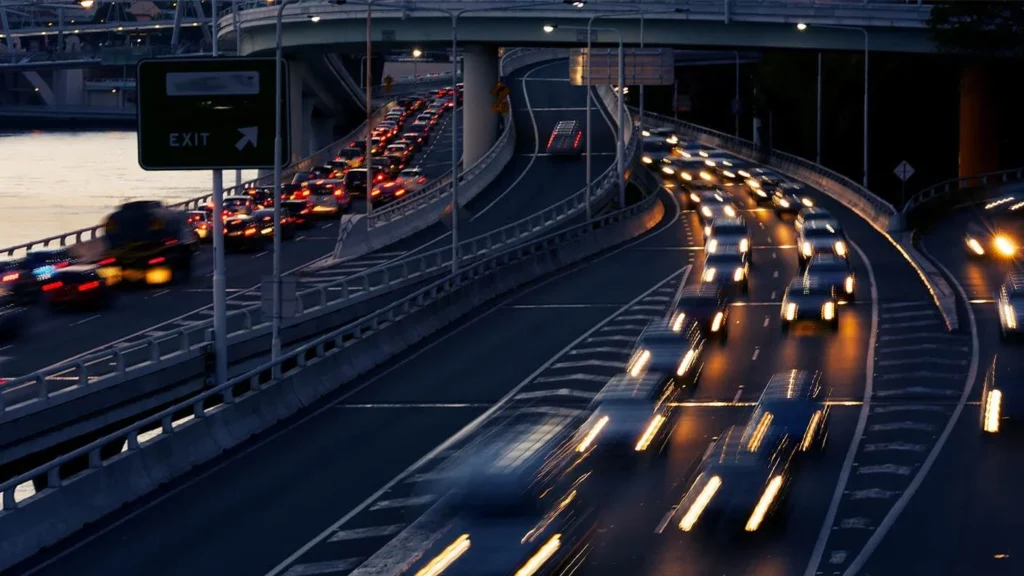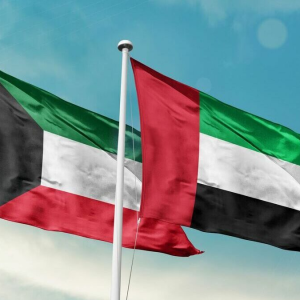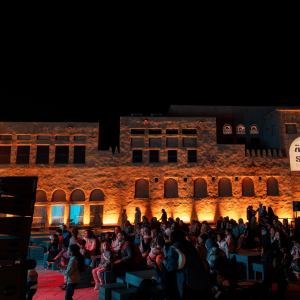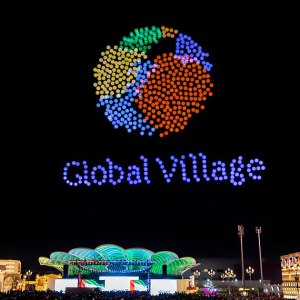The UAE has always been at the forefront of technological advancements, and its latest endeavor in smart city initiatives is set to change the way people commute. With the introduction of intelligent traffic management systems, residents and visitors can expect smoother, safer, and more efficient journeys.
What Are Smart Traffic Management Systems?
Smart traffic management systems utilize advanced technologies like Artificial Intelligence (AI), the Internet of Things (IoT), and big data analytics to monitor and manage traffic flow. These systems gather real-time data from sensors, cameras, and connected devices, then analyze it to optimize traffic signals, detect congestion, and reroute vehicles efficiently.
The goal is simple: reduce travel time, minimize traffic jams, and improve road safety. With the UAE’s rapid urban development and increasing number of vehicles on the roads, the implementation of these systems comes at the perfect time.

How Are Smart Systems Changing UAE Roads?
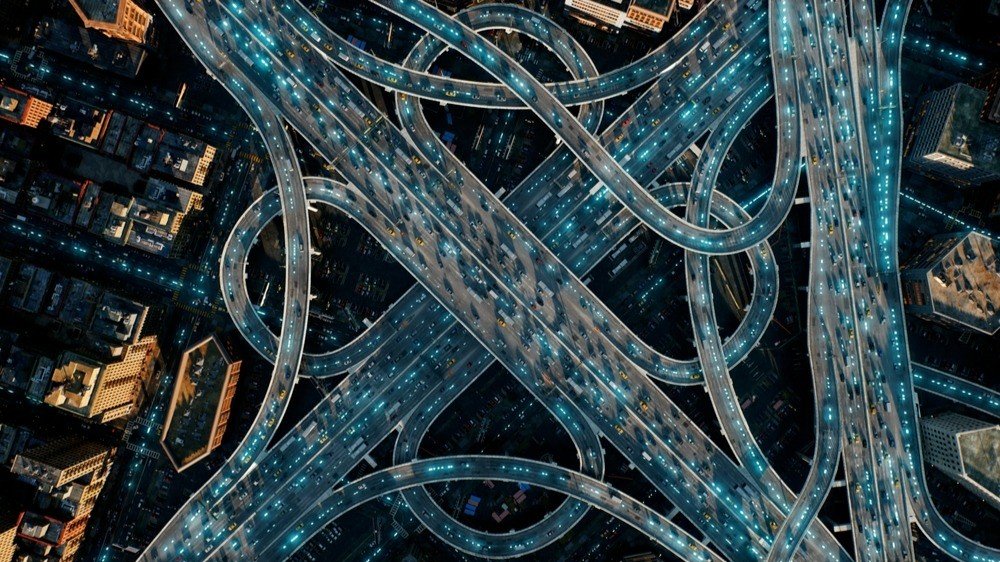
- Real-Time Traffic Monitoring: Smart cameras and sensors installed across the city capture live traffic data. AI algorithms process this data to provide real-time updates on congestion levels, accidents, and road conditions.
- Adaptive Traffic Signals: Unlike traditional traffic lights, smart signals can adjust their timings based on actual traffic volume. This significantly reduces unnecessary waiting times at intersections.
- Accident Detection and Emergency Response: AI-powered systems can detect collisions or incidents instantly. Emergency services are automatically alerted, reducing response times and improving survival rates.
- Smart Parking Solutions: Drivers can locate available parking spaces through mobile apps that integrate with smart sensors installed in parking areas. This eliminates the need for aimless circling in search of a spot.
- Public Transport Integration: Smart systems optimize bus routes and schedules, ensuring better coordination with traffic flow. Commuters receive real-time updates on bus arrivals and delays.
- Connected Vehicle Technology: Some systems are designed to communicate directly with connected cars. Drivers receive real-time alerts on traffic conditions, road hazards, or suggested alternative routes, ensuring safer journeys.
Where Are These Systems Already in Place?
Dubai and Abu Dhabi have been leading the charge in implementing smart traffic technologies. Dubai’s Roads and Transport Authority (RTA) has introduced AI-powered traffic management centers that monitor road conditions using thousands of sensors. Similarly, Abu Dhabi’s Integrated Transport Centre (ITC) has launched initiatives to ease congestion and improve road safety using real-time data analytics.
Sharjah and Ajman are also adopting smart city strategies. By leveraging IoT applications, these emirates are creating connected road networks that can communicate with vehicles and provide navigation assistance. In Ras Al Khaimah and Fujairah, pilot projects are being tested to evaluate the effectiveness of these technologies in improving traffic flow and safety.

Benefits for Commuters and the Environment
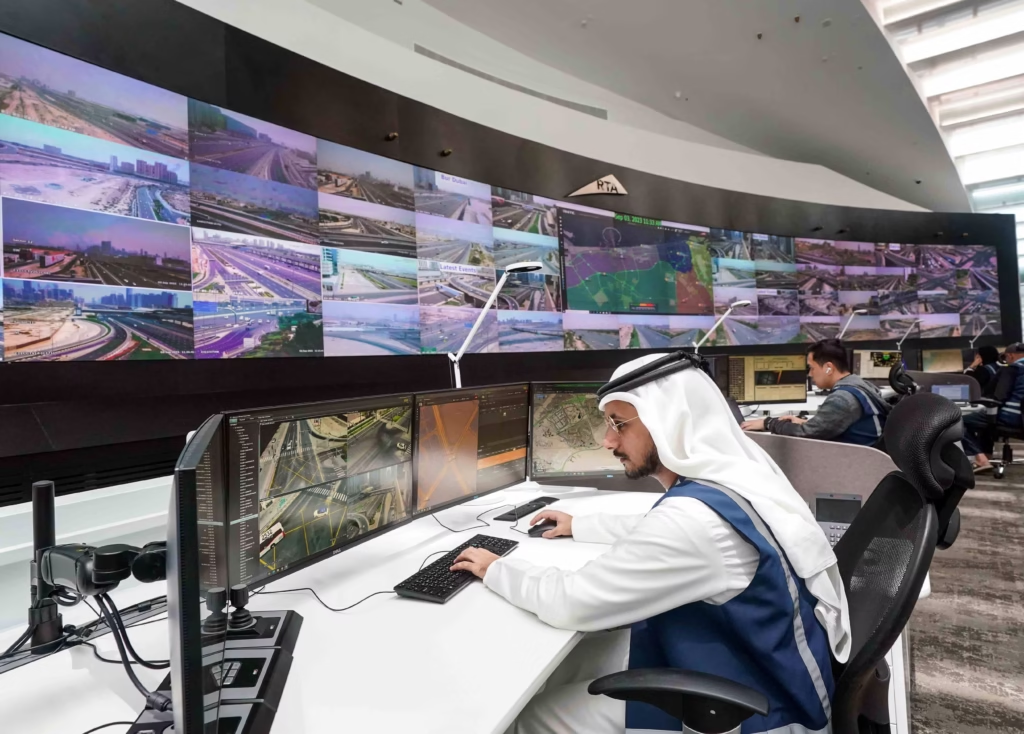
- Reduced Commute Times: Dynamic traffic management means fewer delays and quicker travel.
- Lower Carbon Emissions: Efficient traffic flow reduces vehicle idling, cutting down harmful emissions.
- Enhanced Road Safety: Immediate accident detection ensures faster response times, preventing further incidents.
- Convenience: Real-time information enables drivers to make informed decisions, reducing frustration and fuel consumption.
- Better Urban Planning: City planners gain access to valuable data insights to enhance infrastructure planning and traffic management.
Government Vision and Partnerships
The UAE government has partnered with global technology leaders to bring these innovations to its cities. Collaborations with companies specializing in AI, sensor technology, and smart infrastructure ensure that the systems remain cutting-edge. Additionally, government entities like the Ministry of Interior and local municipalities play a vital role in the successful implementation of these initiatives.
The UAE’s commitment to smart city development aligns with its national strategies, including the UAE Vision 2031 and the Smart Dubai initiative. These projects reflect the country’s focus on leveraging technology to improve quality of life and drive sustainable development.
What’s Next for UAE’s Smart Traffic Plans?
The UAE government remains committed to enhancing its smart city infrastructure. Future plans include expanding autonomous vehicle trials, further developing AI-powered road monitoring systems, and promoting electric and smart public transport options.
Additionally, with the rise of connected vehicles, smart traffic systems will be able to communicate directly with cars, providing real-time navigation adjustments and hazard warnings. This collaborative environment will lead to safer, more efficient roads.
The government is also exploring the potential of integrating AI-powered drones for real-time traffic surveillance. These drones will provide a bird’s-eye view of major roadways, allowing authorities to quickly identify and respond to incidents.
How Can Residents Benefit?
Residents can take full advantage of these smart traffic solutions through user-friendly mobile apps. Many cities have developed applications that provide real-time traffic updates, estimated travel times, and suggested alternative routes. Some apps even offer access to smart parking systems and public transport information, making it easier for commuters to plan their journeys efficiently.
Businesses will also see gains from reduced delivery times and lower transportation costs. Logistics companies can integrate with these systems to plan faster and safer routes, ensuring timely deliveries.
Final Thoughts
The UAE’s push towards smart traffic management is a significant step toward creating sustainable, future-ready cities. By leveraging advanced technologies, the country is not only tackling congestion but also making commuting more enjoyable for residents and visitors alike.
As these initiatives continue to expand, drivers can look forward to a future with fewer traffic headaches and greener, safer roads. The next time you hit the road in the UAE, you just might find that the gridlock is a thing of the past.
Also read: Ajman’s Parks Are Winning Awards – Here’s Why It Matters

